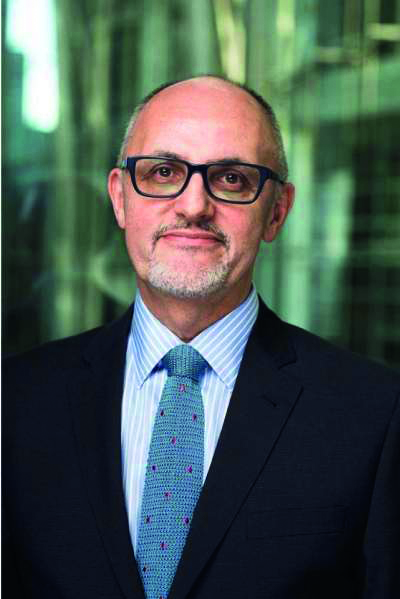On the United Nation’s International Day of Persons with Disabilities, Professor Paul Knight OBE explains how the department is supporting disabled people
On the United Nation’s International Day of Persons with Disabilities, Professor Paul Knight, Social Security Scotland’s chief medical advisor, explains how Scotland’s approach to delivering disability benefits supports the rights of disabled people so they can get the financial support they are entitled to.
Social Security Scotland administers 14 benefits including Child Disability Payment and Adult Disability Payment.
These benefits provide extra money to help with the costs that disabled children and adults may face, like more expensive transport and higher energy bills.
Our approach is different from the Department of Work and Pensions (DWP), says Professor Knight. The legislation which established Social Security Scotland says, ‘social security is a human right,’ and ‘respect for the dignity of individuals is to be at the heart of the system’.
People often don’t know what we mean by a human rights approach. It means we look at people with disabilities as individuals with rights, the same as everybody else. We also consider the environment that they live in. In other words, the human rights model focuses on people but acknowledges barriers.
This is different from the DWP where a more medical approach is used. We are less interested in an individual’s diagnosis. We are more interested in how the person’s disability or condition affects their day-to-day life.
We trust people to tell us the truth and we assume that we are being told the truth.

We don’t see applicants as people who are seeking handouts. Our overriding concern is to make sure that people get the benefits that they are entitled to and that we get it right, first time, when making decisions on applications.
This approach is reflected in the way Social Security Scotland was set up. We are the only Scottish government agency that directly employs a coherent group of nurses, social workers, social care workers, occupational therapists and physiotherapists as civil servants.
We don’t use private-sector assessments to make decisions on disability benefit applications. Instead, we draw on the expertise of health and social care professionals to make sure we have the clearest and most complete picture possible of an applicant’s needs while also enabling the client to tell their own story. Our health and social care staff are not there to re-diagnose a person’s condition.
Applicants often think their GP is the best person to supply supporting information. But if an applicant hasn’t seen their GP for six months or more, it's unlikely that they're going to be able to provide what we’re looking for. On the other hand, if the person goes to a day centre every week, it's more likely that there will be someone there who can provide helpful supporting information.
Community mental health workers, teachers, physiotherapists, day care centre managers - all these professionals understand the impact of disabilities. They see people with disabilities every day and encounter them in environments where they need help.
These professionals may be aware of something the applicant has been coping with for a long time, something that has become so normal for them that they haven’t put it in their application. For example, somebody who goes up and down stairs on their bottom because it’s the safest way for them to do it. Their disability is affecting their life and while it may be safer for them it will also be very tiring.
Getting supporting information directly from applicants is the fastest route to achieving a decision and often applicants have the information we need at home - things like prescriptions, appointment letters and care plans. Unlike the DWP, Social Security Scotland can get supporting information for an applicant if they ask us to and professionals, working in the community, shouldn’t be surprised if we approach them. We are not asking these professionals to make a decision regarding eligibility for a benefit. We are asking them to describe what they see.
“We’d also ask applicants to have a think about who we can contact for supporting information. If they can tell us who they're interacting with, and if they're okay for us to contact them, that would be a real plus.
For example, they can ask us to contact the occupational therapist that visits their house to provide aids and appliances, or a physiotherapist who may be helping them recover from a stroke. These are the people who know what daily life is like for that person and it is that information that is immensely valuable in helping us to process disability applications.
We want to make the right decisions first time and make those decisions quickly. That’s why today, on the United Nation’s International Day of Persons with Disabilities, we’re reaching out to professionals and disabled people to explain, and celebrate, Social Security Scotland’s different approach to delivering disability benefits.
Professor Paul Knight is Social Security Scotland’s Chief Medical Advisor and has over 30 years’ experience working with older people and was formerly a consultant geriatrician at the Glasgow Royal Infirmary.






